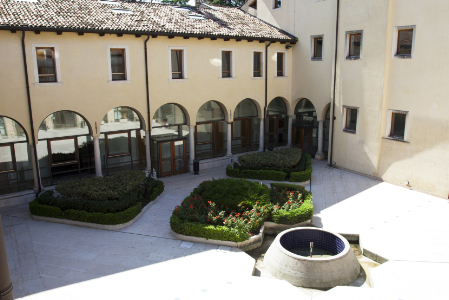Learning outcomes
The course represents and advanced and specialized development of the fundamental course of Criminal Law. To take the exam, it is mandatory to have already passed the Criminal Law course, in order to acquire and handle the categories and the basic notions concerning the general part of Italian Penal Code.
The course provides students with legal notions and concepts necessary to understand the evolution and the frequent modification of the economic and financial crimes, related to the business and labour market changes. It also aims at offering students the possibility to develop the methods and techniques of legal-case solving.
At the end of the course, students should be able to understand and recognize the peculiarities of the different economic crime areas, the sources of the European Law and the constitutional principles in criminal law, such as the objective and subjective elements of the economic and financial crimes, the specific imputation rules and their application, the protected legal goods and the different forms and manifestation of crimes. They should also be able to handle and solve individual cases correctly.
The course is divided into two modules:
First module (24 hours)
- Economic activity and criminal justice interventions
- Definition, content and sources of the economic criminal law
- Legislative techniques and protected legal goods in economic crime areas
- Individual criminal responsibility, delegation of functions and corporate liability (Law Decree nr. 231/2001)
- corporate and financial crimes
- bankruptcy crimes
- Criminal Labor law: special attention will be paid to the offences concerning the workplace health protection (Articles 437, 451, 589 and 590 Italian Penal Code) and to the corporate liability for workplace accidents.
Second module (12 hours)
- Criminal offences against “public economy”: the concept of “public economy”, economic and trade crimes, the protected legal interests and the legislative techniques.
Teaching methods
For attending students, the course will be mainly based on frontal lectures concerning the basis and fundamental categories of Economic Criminal Law, the interpretation of the offences in economic crime areas and their judicial implementation. Workshops or seminars about specific case studies or criminal offences recently amended by the legislator could be organized during the course. The online registration to the e-learning platform will provide students with a source of reference, bibliography, scientific papers and selected case-law.
The professors will provide support to non-attending students during their office hours. They could also register to the University e-learning platform and have access to a source of reference, bibliography, scientific papers and selected case-law.
Reference books
ALESSANDRI A., SEMINARA S., Diritto penale commerciale, vol. I., I principi generali, Giappichelli, Torino, 2018
MAZZACUVA N., AMATI E., Diritto penale dell’economia, Problemi e casi, Cedam, Padova, 4^ ed., 2018
ANTOLISEI, Manuale di diritto penale, Leggi complementari, vol. II, Reati in materia di lavoro (a cura di C.F. GROSSO), Vol. II, 13° ed., Giuffrè, Milano, 2014
FIANDACA G., MUSCO E., Diritto penale, Parte speciale. vol. I, 5^ ed., Zanichelli, Bologna, 2012 (chapter 8: Delitti contro l’economia pubblica, l’industria e il commercio).
The final exam consists of an oral examination.
It aims at verifying:
- the level of achievement of the learning objectives previously identifies
- the linguistic accuracy
- the argumentative, reasoning and problem-solving skills
- the ability to connect the knowledge achieved systematically
Attending students have the possibility to write short paper on specific topics, upon agreement with the professors. The paper will be discussed during the oral examination and will be part of the final exam.
Assessment scale is from 18 to 30. The minimum passing score is 18.







